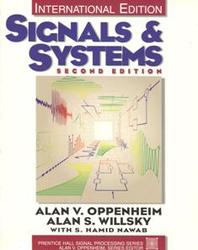C How to program, 3/e
暫譯: C 語言程式設計,第三版
Harvey M. Deitel, Paul J. Deitel
- 出版商: Prentice Hall
- 出版日期: 2000-08-16
- 售價: $900
- 貴賓價: 9.8 折 $882
- 語言: 英文
- 頁數: 1253
- 裝訂: Paperback
- ISBN: 0130895725
- ISBN-13: 9780130895721
-
相關分類:
C 程式語言
無法訂購
買這商品的人也買了...
-
 Computer Algorithms C++
Computer Algorithms C++$1,120$1,098 -
 Signals & Systems, 2/e (IE-Paperback)
Signals & Systems, 2/e (IE-Paperback)$1,250$1,225 -
 Computer Organization & Design: The Hardware/Software Interface, 2/e
Computer Organization & Design: The Hardware/Software Interface, 2/e$1,200$1,176 -
 Fundamentals of Data Structures in C
Fundamentals of Data Structures in C$1,050$1,029 -
 Fundamentals of Database Systems, 3/e (平裝版)
Fundamentals of Database Systems, 3/e (平裝版)$1,090$1,068 -
 The C Programming Language, 2/e (IE-Paprback)
The C Programming Language, 2/e (IE-Paprback)$640$627 -
 Data Mining: Concepts and Techniques
Data Mining: Concepts and Techniques$2,530$2,404 -
 Software Engineering, 6/e
Software Engineering, 6/e$1,090$1,068 -
 Operating System Concepts, 6/e
Operating System Concepts, 6/e$1,050$1,029 -
 當 FrontPage 愛上 PhotoImpact 譜出高質感網路
當 FrontPage 愛上 PhotoImpact 譜出高質感網路$350$298 -
 Introduction to Algorithms, 2/e (Hardcover)
Introduction to Algorithms, 2/e (Hardcover)$990$970 -
 Digital Image Processing, 2/e(IE)(美國版ISBN:0201180758)
Digital Image Processing, 2/e(IE)(美國版ISBN:0201180758)$1,150$1,127 -
 Computer Networks and Internets with Internet Applications, 3/e
Computer Networks and Internets with Internet Applications, 3/e$960$941 -
 $700Microsoft Visual Basic .NET Step by Step
$700Microsoft Visual Basic .NET Step by Step -
 802.11 Wireless Networks: The Definitive Guide
802.11 Wireless Networks: The Definitive Guide$1,650$1,568 -
 Thinking in Java 中文版 (Thinking in Java, 2/e)
Thinking in Java 中文版 (Thinking in Java, 2/e)$920$727 -
 Computer Architecture: A Quantitative Approach, 3/e(精裝本)
Computer Architecture: A Quantitative Approach, 3/e(精裝本)$1,300$1,274 -
 Operating System Concepts, 6/e (Windows XP Update)
Operating System Concepts, 6/e (Windows XP Update)$1,050$1,029 -
 Cryptography and Network Security Principles and Practices, 3/e
Cryptography and Network Security Principles and Practices, 3/e$1,030$1,009 -
 JavaScript 範例活用辭典
JavaScript 範例活用辭典$450$351 -
 Understanding the Linux Kernel, 2/e (Paperback)
Understanding the Linux Kernel, 2/e (Paperback)$1,800$1,710 -
 Embedded Software Development with eCos
Embedded Software Development with eCos$1,840$1,748 -
 作業系統概念 (Operating System Concepts, 6/e Windows XP Update)
作業系統概念 (Operating System Concepts, 6/e Windows XP Update)$780$741 -
 Red Hat Linux 9 實務應用
Red Hat Linux 9 實務應用$650$553 -
 STRUTS 實作手冊(Struts in Action: Building Web Applications with the Leading Java Framework)
STRUTS 實作手冊(Struts in Action: Building Web Applications with the Leading Java Framework)$690$538
相關主題
商品描述
Summary
The complete, authoritative guide to C, with concise introduction to C++ and Java™
This Third Edition of the world's most widely used C textbook carefully explains C (535 pages) and presents substantial introductions to C++ (298 pp.) and Java (346 pp.).
Dr. Harvey M. Deitel and Paul J. Deitel are the principals of Deitel & Associates, Inc.. the internationally-recognized corporate training and content-creation organization specializing in C++, Java™, C, Visual Basic®, Internet, World Wide Web, XML™, Python, Perl and object technologies. The Deitels are also the authors of the world's #1 C++ and Java textbooks, C++ How to Program, 3/e and Java How to Program, 3/e.
In C How to Program: Third Edition, the Deitels introduce five of today's most popular programming paradigms. Key topics include:
- Procedural programming (in C)
- Classes and objects (C++ and Java)
- Inheritance/polymorphism (C++/Java)
- Generic programming (C++ templates)
- Event-driven programming (in Java)
C How to Program helps students build C, C++ and Java applications. It includes:
- Hundreds of "live-code" programs with screen captures that show exact outputs
- Extensive self-review exercises (many with answers) accompanying each chapter
- Hundreds of tips, recommended practices and cautions—all marked with icons
C How to Program is the centerpiece of a complete family of resources for teaching and learning C, C++ and Java, including Web sites (www.deitel.com and www.prenhall.com/deitel) with the book's source-code examples and other information for faculty, students and professionals; optional interactive CD-ROMs (C++ Multimedia Cyber Classroom and Java 2 Multimedia Cyber Classroom) containing thousands of hyperlinks and audio walkthroughs of the hundreds of code examples in C++ How to Program and Java How to Program—and e-mail access to the authors at deitel@deitel.com
For information on worldwide corporate on-site seminars and Web-based training offered by Deitel & Associates, Inc., visit: www.deitel.com
For information on all Deitel publications including How to Program Series books, Multimedia Cyber Classrooms, Multimedia Cyber Classrooms, Complete Training Courses (that include Deitel books and Cyber Classrooms)and Web-Based Training Courses please see the last few pages of this book.
商品描述(中文翻譯)
摘要
《C 語言完全權威指南,並簡明介紹 C++ 和 Java》
本書的第三版是全球最廣泛使用的 C 語言教科書,詳細解釋了 C 語言(535 頁),並對 C++(298 頁)和 Java(346 頁)進行了實質性的介紹。
哈維·M·德伊特爾博士(Dr. Harvey M. Deitel)和保羅·J·德伊特爾(Paul J. Deitel)是德伊特爾與聯合公司(Deitel & Associates, Inc.)的主要負責人,該公司是一家國際知名的企業培訓和內容創建機構,專注於 C++、Java、C、Visual Basic、網際網路、全球資訊網、XML、Python、Perl 和物件技術。德伊特爾兄弟也是全球第一本 C++ 和 Java 教科書《C++ 程式設計:第三版》和《Java 程式設計:第三版》的作者。
在《C 語言程式設計:第三版》中,德伊特爾兄弟介紹了當今五種最受歡迎的程式設計範式。主要主題包括:
- 程序式程式設計(C 語言)
- 類別與物件(C++ 和 Java)
- 繼承/多型(C++/Java)
- 泛型程式設計(C++ 模板)
- 事件驅動程式設計(Java)
《C 語言程式設計》幫助學生建立 C、C++ 和 Java 應用程式。內容包括:
- 數百個「即時程式碼」範例,附有顯示精確輸出的螢幕截圖
- 每章附有大量自我檢測練習(許多附有答案)
- 數百個提示、建議做法和注意事項,均以圖示標示
《C 語言程式設計》是教學和學習 C、C++ 和 Java 的完整資源系列的核心,包括網站(www.deitel.com 和 www.prenhall.com/deitel),提供書中的原始碼範例及其他資訊給教職員、學生和專業人士;可選的互動式 CD-ROM(《C++ 多媒體網路教室》和《Java 2 多媒體網路教室》)包含數千個超連結和音頻導覽,涵蓋《C++ 程式設計》和《Java 程式設計》中的數百個程式碼範例;以及可通過電子郵件聯繫作者,地址為 deitel@deitel.com。
有關德伊特爾與聯合公司提供的全球企業現場研討會和網路培訓的資訊,請訪問:www.deitel.com。
有關所有德伊特爾出版物的資訊,包括《程式設計系列》書籍、《多媒體網路教室》、《完整培訓課程》(包括德伊特爾書籍和《網路教室》)以及《網路培訓課程》,請參見本書的最後幾頁。











